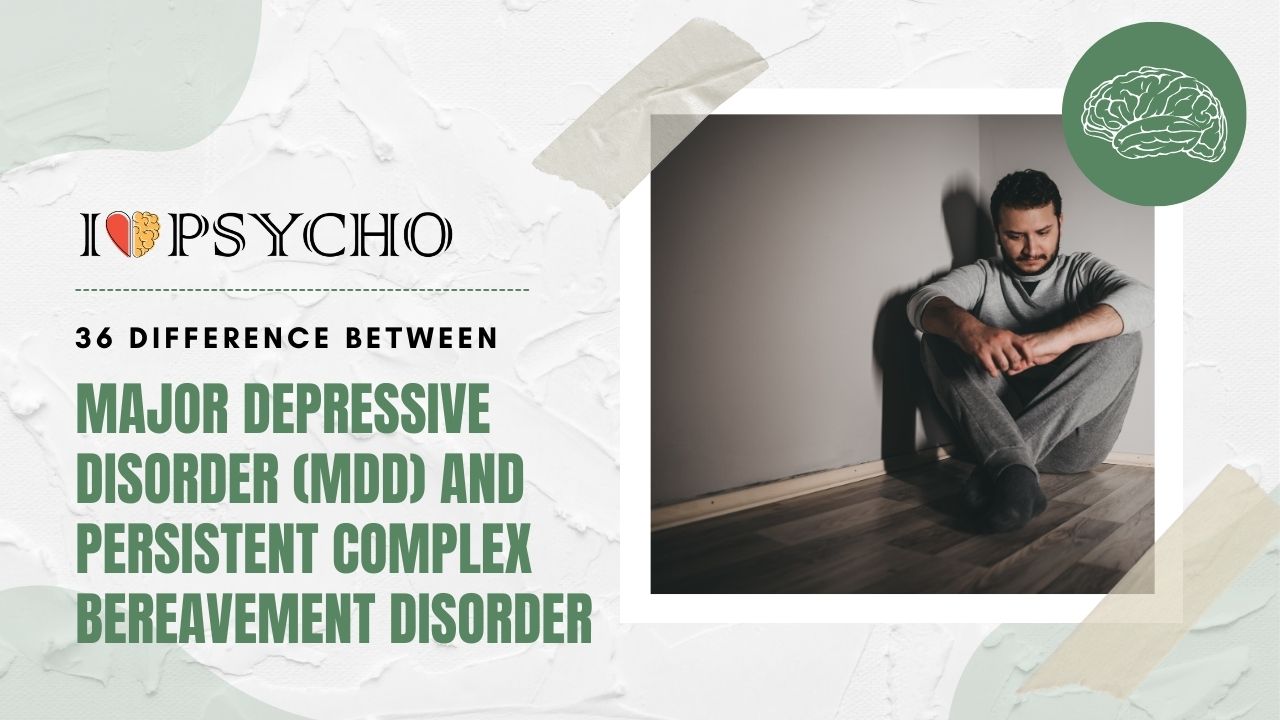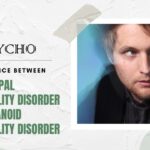MDD and PCBD are two psychiatric disorders with some similarities but many variances. PCBD, formerly complex grieving, is triggered by the loss of a loved one and is characterized by profound, persistent grief and difficulties adapting to life without the deceased. Triggers distinguish MDD from PCBD. MDD can happen without a trigger, whereas PCBD invariably follows a substantial loss. Another difference is symptom duration. MDD lasts at least two weeks and PCBD for at least 12 months after loss, with symptoms fluctuating.
The symptomatology also varies. MDD can include weariness, change in diet and sleep habits, and guilt or worthlessness. However, PCBD involves an obsession with the departed, a desire for them, and skepticism about their death. MDD symptoms vary and respond to treatment, but PCBD symptoms focus on the loss and may not heal without specific mourning therapy.
MDD and PCBD treatments differ. MDD is treated with psychotherapy, medication, and lifestyle modifications. PCBD is best treated with grief-focused psychotherapy like Complicated Grief Treatment (CGT), which helps people cope with loss and adjust to life without the deceased. Medication may help some MDD symptoms but not PCBD. Loss of connection is another important distinction. PCBD focuses on connection to the deceased, whereas MDD may be related to a larger sense of despair and hopelessness.
In conclusion, Major Depressive Disorder and Persistent Complex Bereavement Disorder share sadness and despair, but their triggers, duration, symptomatology, treatment, and role of the lost relationship differ. Mental health professionals must accurately diagnose patients to provide them with personalized care.
|
S.No. |
Aspect |
Major Depressive Disorder (MDD) |
Persistent Complex Bereavement Disorder (PCBD) |
|
1 |
Trigger |
Not necessarily linked to loss |
Specifically linked to a significant loss |
|
2 |
Duration |
Typically episodic |
Persistent, lasting at least 12 months |
|
3 |
Onset |
Can occur at any time |
Typically begins after a specific loss |
|
4 |
Symptoms |
Widespread depressive symptoms |
Focused on grief and loss-related symptoms |
|
5 |
Core Symptom |
Depressed mood |
Intense and prolonged grief |
|
6 |
Criteria for Diagnosis |
Diagnostic and Statistical Manual of Mental Disorders (DSM) criteria |
DSM criteria for Persistent Complex Bereavement Disorder |
|
7 |
Loss of Interest |
Present |
May or may not be present |
|
8 |
Suicidal Thoughts |
More common |
Less common but can occur |
|
9 |
Sleep Disturbance |
Common |
Common, often with dreams of the deceased |
|
10 |
Appetite Changes |
Common |
Common, often a decrease in appetite |
|
11 |
Weight Changes |
Common |
Common, often weight loss |
|
12 |
Psychomotor Agitation/Retardation |
Common |
Less common |
|
13 |
Cognitive Impairment |
Difficulty concentrating |
Preoccupation with thoughts of the deceased |
|
14 |
Functional Impairment |
Impairs daily functioning |
Impairs daily functioning related to the loss |
|
15 |
Treatment Approach |
Antidepressant medications and psychotherapy |
Grief-focused psychotherapy and support |
|
16 |
Prognosis |
Often episodic, varying prognosis |
Typically resolves with time, but can be persistent |
|
17 |
Role of Medication |
Commonly used |
Less commonly used |
|
18 |
Recurrence |
Common, recurrent episodes |
Typically resolves without recurrent episodes |
|
19 |
Emotional Response |
Generally a wide range of emotions |
Predominantly grief-related emotions |
|
20 |
Risk Factors |
Genetic, environmental, and psychological factors |
Loss-related factors and predisposing factors |
|
21 |
Prevalence |
High |
Lower, specific to individuals experiencing loss |
|
22 |
Response to Loss |
Often unrelated to a specific loss |
Directly related to a significant loss |
|
23 |
Time Frame for Diagnosis |
At least two weeks |
At least 12 months |
|
24 |
Symptom Timing |
May be continuous or episodic |
Typically continuous |
|
25 |
Impact on Self-esteem |
May have negative self-esteem |
Self-esteem may be more related to grief |
|
26 |
Role of Guilt |
May involve general guilt |
Often includes guilt related to the loss |
|
27 |
Hallucinations |
Less common, non-grief related hallucinations |
Grief-related hallucinations can occur |
|
28 |
Avoidance Behaviors |
Less common, if present often not grief-related |
May include avoidance of reminders of the loss |
|
29 |
Suicidal Risk Factors |
Broad range of risk factors |
More closely tied to grief and loss factors |
|
30 |
Coping Mechanisms |
May involve avoidance or numbing |
Focused on coping with grief and loss |
|
31 |
Presence of Anxiety Symptoms |
Common |
Less common, typically grief-related |
|
32 |
Onset Age |
Adolescence to late adulthood |
Typically occurs after a significant loss |
|
33 |
Role of Trauma |
Not necessarily trauma-related |
Grief often following a traumatic loss |
|
34 |
Diagnostic Criteria for Grief |
Not a primary focus |
Central to the diagnosis |
|
35 |
Impact on Relationships |
Can strain relationships |
May affect relationships due to grief |
|
36 |
Symptom Resolution |
Symptoms can resolve between episodes |
Symptoms typically resolve with time and healing |
Frequently Asked Questions (FAQs)
Q1: How do Major Depressive Disorder (MDD) and Persistent Complex Bereavement Disorder differ?
MDD and PCBD vary mostly in triggers. MDD, or clinical depression, is characterized by chronic poor mood, hunger and sleep abnormalities, and despair. In contrast, PCBD is usually associated with the loss of a loved one and is characterized by profound, protracted grieving and difficulties adjusting to life without them. Both diseases entail melancholy, but PCBD is caused by the loss of a loved one, whereas MDD is undetermined.
Q2: MDD and PCBD symptoms normally last how long?
Symptom duration is another key difference between MDD and PCBD. MDD symptoms last at least two weeks and can last months or years untreated. However, PCBD symptoms last at least 12 months after a loved one dies and often change strength. Unlike normal mourning, PCBD involves strong and extended grief.
Q3: What are MDD and PCBD's main symptoms and how do they differ?
The symptoms of MDD and PCBD differ greatly. MDD can include hunger and sleep abnormalities, weariness, guilt, worthlessness, and a loss of interest in everyday activities. Grief symptoms in PCBD include concern with the departed, great desire for them and disbelief over their death. PCBD symptoms center on grieving and the inability to move on, whereas MDD symptoms may involve physical symptoms.
Q4: Can medicine treat MDD and PCBD?
Medication can treat MDD and PCBD, however, its role differs. Besides psychotherapy and lifestyle adjustments, MDD patients typically use antidepressants to manage symptoms. Medication is rarely used for PCBD, however, it may be administered if anxiety or sleeplessness are preventing grief-focused psychotherapy.
Q5: What treatments work best for MDD and PCBD?
Treatments for MDD and PCBD differ. MDD is treated with psychotherapy, medication, and lifestyle modifications. MDD counseling often includes CBT and IPT. PCBD is best treated with grief-focused psychotherapy like Complicated Grief Treatment (CGT), which helps people cope with loss and adjust to life without the deceased. Medication may help some MDD symptoms but not PCBD. Professional assessment and personalized care are crucial since the best therapy relies on the diagnosis and the patient’s unique circumstances.









